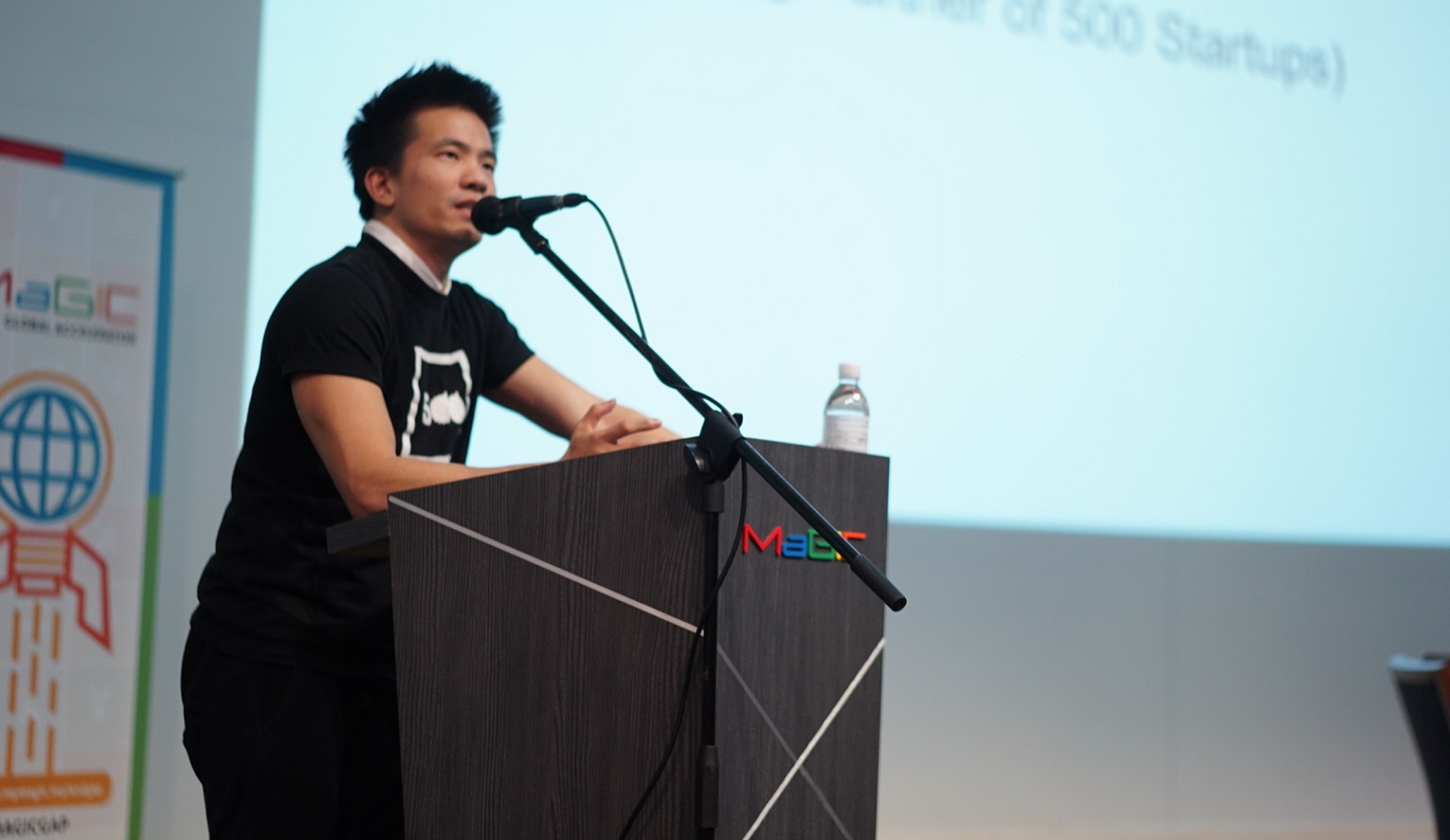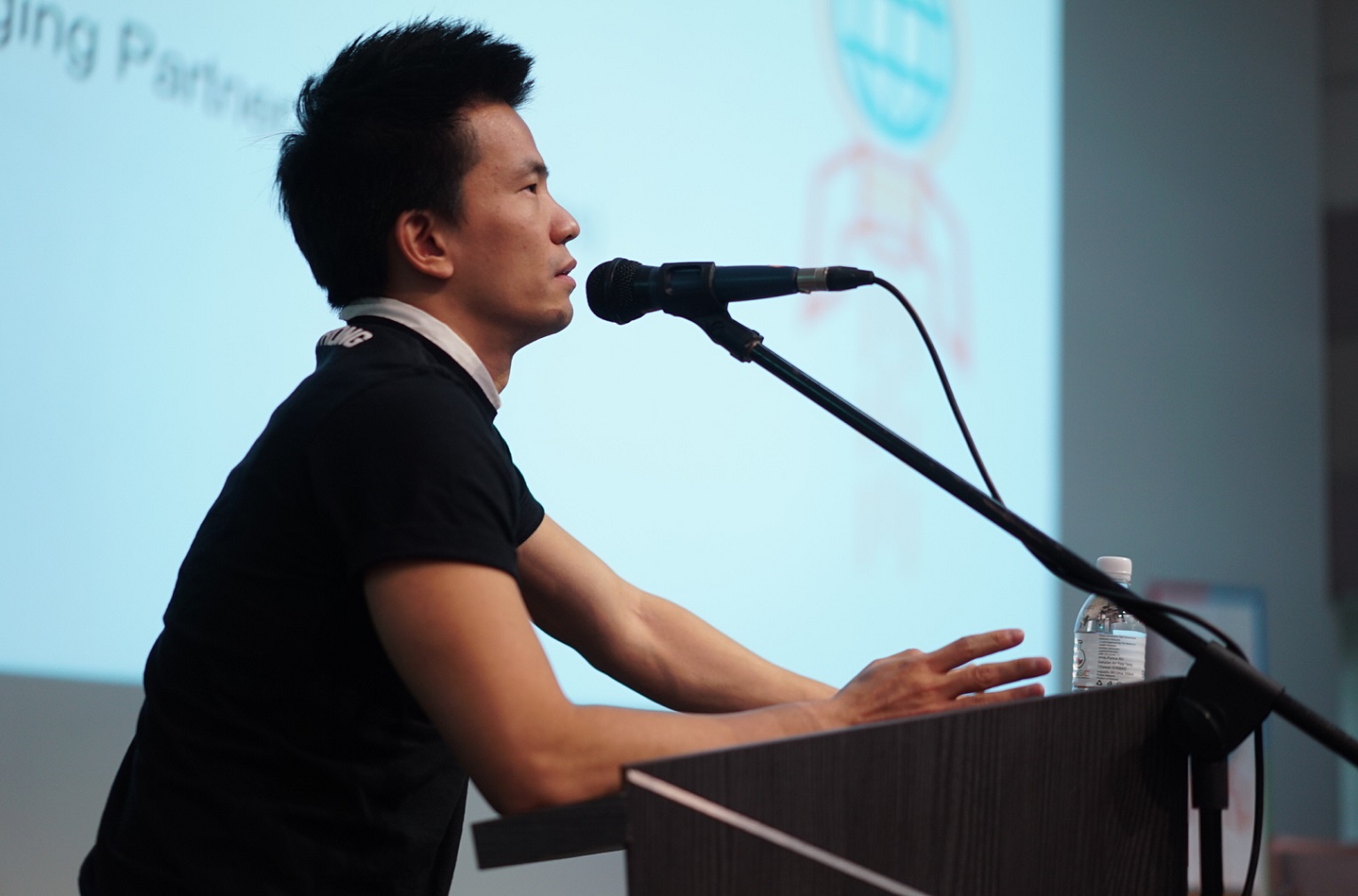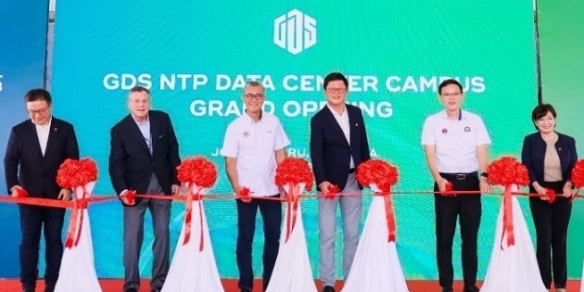Khailee Ng encourages young startups to contribute to New Economy
By Anushia Kandasivam July 5, 2017
- Solving a problem as a startup has far-reaching results
- Accelerator programmes support economic growth
“WE ARE at the turning point right now where the power to build tech startups is no longer monopolised by the Silicon Valley narrative,” said Khailee Ng (pics) at the launch of the Malaysian Global Innovation & Creativity Centre’s (MaGIC) inaugural Global Accelerator Programme (GAP)
The entrepreneur and 500 Startups managing partner was addressing the first GAP cohort consisting of 56 global startups handpicked by MaGIC. GAP aims to provide them with the necessary skills, knowledge and network to break into the Asean market and become investment ready in four months.
To achieve this, GAP will provide technical and business mentoring, along with direct access to route-to-market partners, a monthly stipend, benefits in the form of software tools worth more than US$400,000 (RM1.7 million) each, among others. Some of the benefits are to be used up within the 4-month programme while others are available until they are used up.
“Once upon a time, the tech startup story and the million-dollar unicorn story were Silicon Valley stories. But it is now your story,” he said.
Ng addressed a question that he believes many startups ask, including those participating in GAP: why do governments or agencies provide startups with so much help? According to Ng, there are three reasons.
The first is that there are too many problems in the world and not enough people solving them. The problems are complex and far-ranging but there are always solutions. One example Ng cited is setting up connection points in rural and remote villages for people to access banking, e-commerce and even financing for their own startups, which solution could solve a host of economic and social problems.
A startup like one of the GAP participants could have such a solution, said Ng, also implying that programmes such as GAP could just be the catalyst to solve more of the world’s problems.
The second reason is that startups help build the New Economy. Ng said that the economic projections for countries that still rely on a traditional economy are so poor as to be frightening. Startups are needed to inject new life into such economies.
He cited the example of the US, where the top five companies with the highest market capital are no longer oil and gas companies or banks but are all tech companies. “What will happen if the top five companies in your country are all tech companies?” he asked the room.
“That’s going to inspire tens of thousands of companies to want to be like that, and inspire SMEs, which make up 60%-70% of the total GDP (Gross Domestic Product), to use and embrace technology and essentially turn themselves into tech startups.”
Ng believes that in two or three years, differentiating a SME from a startup will be difficult because everybody will be using software, big data and other technologies. “Your startup succeeding in such a big way will create the New Economy.”
The final reason programmes such as GAP exist to help startups is that successful startups go on to help other entrepreneurs and startups, completing the cycle.
Ng revealed that he would not be where he is today if an investor – Chok Kwee Bee of Teak Capital – had not taken a chance on him and what looked like an unfundable idea to others, adding that all the startups in the GAP cohort would have been given a similar chance at least once.
“I believe we recognise how lucky we are to be here, and my bet is when you succeed you will help others along the way.”
He adds that though some entrepreneurs may feel that they should wait until they are rich and influential to give back, their startups do help others in various ways during its growth process, whether it be in its hiring decisions – the people it chooses to hire and train – its vendors, or anyone the team meets and collaborates with along the way.
“A lot of people will be helped because of your success. So I trust that as a lot of people in this room continue to succeed, you will help other people to succeed.”
“These three reasons are why I get up and go to work every day,” he shares.
GAP is one of many examples of programmes around the world that support economies. Malaysia is a great place to start and enter the larger Southeast Asian market from, said Ng.
“For us to continue investing in people, in companies that the Silicon Valley will sit up and take notice of is really important work,” he said, adding that the startups in the GAP cohort had the potential to bring benefit to the whole world.
“When you solve problems faced by society, when you help create the new economy in your country, when you help other people succeed along the way, you know why what you do here is important and you know why exactly you are in GAP.”
Related stories:
MOL founder advises young entrepreneurs to be most careful when successful
Emerging startup hotspot? Look again says BookDoc founder Chevy Beh
Endeavor’s enviable platform welcomes 18 new entrepreneurs
For more technology news and the latest updates, follow us on Facebook,Twitter or LinkedIn.




